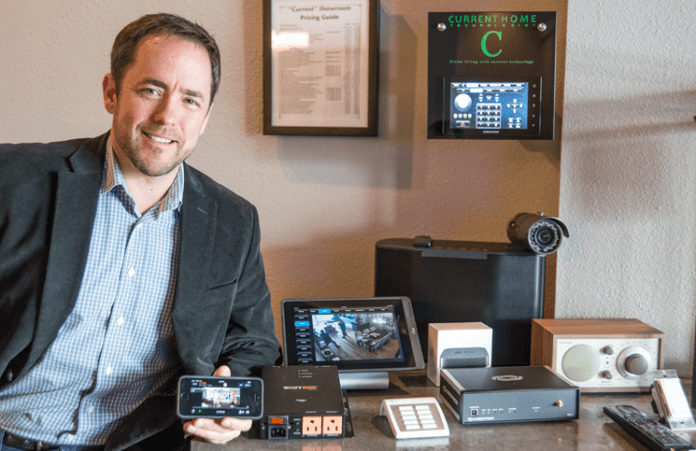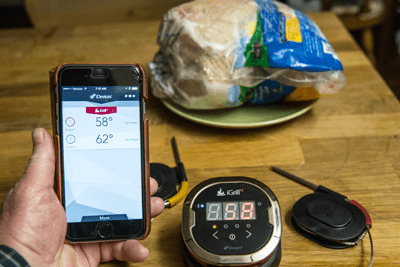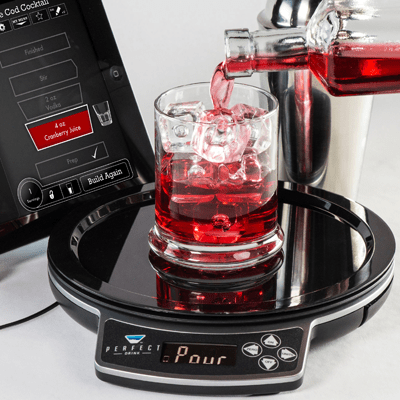Your car tells you where the nearest empty parking space is. Your milk carton knows it’s almost empty and adds milk to the shopping list on your phone. Science fiction? Nope, it’s the burgeoning Internet of Things (IoT).
From the kitchen, to the office, to the warehouse, devices are getting smarter, and communication between those devices is becoming more commonplace.
“There’s very little technology you can buy now, from a coffee maker to a vacuum, that doesn’t have a roadmap for Internet connection,” said Jeff McInnis, president and CEO at SmartRG.
SmartRG is just one of several local businesses that are playing an active role in advancing the IoT.
SmartRG, recently named by the Portland Business Journal as the 16th largest hardware company in the Portland Metro area, focuses on home automation and control, delivered over residential broadband. The firm’s Sergio™ home automation platform will use IoT technology to connect many devcies in the home to the Internet, applications and to each other. For example, using a Wi-Fi-enabled camera and battery-controlled sensors, the platform can detect when a door opens and automatically turn on lights and turn up the heat, as well as turn them off when the motion sensor no longer detects movement in the room.
Where broadband service providers have traditionally promoted the “triple play,” a new service using IoT technology enables a “new quad-play – Internet, phone, TV and home automation,” said McInnis, who also stated that the global home automation market is expected to reach $16.4 billion by 2019.
Current Home Technologies is another Vancouver company whose growth is being fueld by the IoT. The firm specializes in the integration of high-end consumer electronics. These solutions include security systems, data networks, Wi-Fi, whole-house and custom audio, home theaters, lighting control and intercoms. Current Home Technologies integrates these components into a single app that home owners can access from any Internet-connected device.
“The IoT is great for us,” said Current Home Technologies owner Tony Curtis. “There are more things to integrate.”
Fitness
Ryan Self, owner of BeatsPerMinute Fitness, is putting the IoT to work – literally. His company, founded a year ago, is a “mobile fitness company” – clients can view workout videos from their smartphone, tablet, TV or any Internet-connected device.
“We saw a huge opportunity for individuals to workout at home, the gym or the park – anywhere they have a smartphone,” said Self. “The IoT drastically changes how we do things, from fitness to how we control our refrigerator.”
Self uses his background as a personal trainer and certified nutritionist to provide nutrition and workout plans that can be customized to a particular client. Since January, Self said, the number of clients has grown 15 to 20 percent each month. He attributes that growth to people’s increasing familiarity with smartphone technology and his company’s focus on automation.
“Automation enables us to service a much greater userbase than if we did only one-on-one appointments,” Self said. “I built the business so that we could offer the same great experience to every customer regardless of whether we have 15 clients or one-thousand.”
Retail
Retailers take note – point of sale (POS) systems have gone mobile. Shopbox Retail, whose office and warehouse are in Vancouver’s Uptown Village, provides wireless POS systems for pop-up events and kiosks. For the last four years, the company has been shipping rugged, modular POS solutions to customers, such as a hot-air balloon events, the Boston Marathon, Crossfit national events and the NBA All-Star Game. The POS comes in a case on a pallet with a lid and uses a Wi-Fi Internet connection to process credit cards. The customer’s inventory is preloaded on the system and the customer can easily ship the pallet back to Shopbox or to another event.
“The IoT is not new technology really,” said Shopbox president Ryan Jarvis. “It’s just on a finer scale. I think it’s neat. We used to have small networks in an office plus one access point (a router). With the IoT you don’t need to hide behind the router – you can put that connectivity into things such as toothbrushes, milk cartons, white boards and house controls.”
Mike Wallace, co-founder of Vancouver-based Pure Imagination LLC, has taken a different approach to the IoT.
“Two years ago, we realized that IoT is mostly controlling lights, locks and thermostats,” said Wallace. “Not a lot of companies are doing IoT in the kitchen.”
So, Wallace turned his attention away from designing high-tech toys, which had been the company’s focus for eight years, and invented (in a matter of weeks) the Perfect Drink® app – a patented smart bartending system that allows anyone to make world-class cocktails at home using a smart digital scale that knows the density of each ingredient and senses the perfect pour, connected to an app on the user’s tablet or smartphone. The first order for Perfect Drink was from the national gift company, Brookstone (which has stores at Lloyd Center and PDX), and has proved popular with restaurants who don’t have budget for a bartender, said Wallace.
Based on Perfect Drink’s success, Pure Imagination took the next logical step – Perfect Bake®. Using similar technology to Perfect Drink, the Perfect Bake system’s scale helps anyone, from kids to experienced chefs, easily and consistently create delicious dishes.
Wallace said that he envisions his products connected to other parts of the kitchen, such as shopping list and inventory, the oven and the mixer. The company recently increased its office space, now occupying both floors at 705 Main. In the new space, they’ve built a test kitchen.
“Now that we’re starting to develop more products and getting more partners, we will be growing the company rapidly,” said Wallace. “We’re good at development, but need to get better at marketing and sales.”
Privacy and security concerns
While the IoT is a growing part of Southwest Washington’s business economy, security and privacy remain concerns with which the entire industry grapples.
“Companies recognize they have to have an answer to “what happens to the data?” that is acceptable before the technology can really take off,” said Curtis.
At a minimum a good firewall and password management are paramount for connected home automation. Smartphone owners, he continued, must exercise personal responsibility. Everyone wants an app, but what happens if you lose your phone? Now someone else can unlock door and walk in. Even seemingly innocuous devices such as a Fitbit Activity Tracker can raise privacy concerns.
“Data is starting to become currency,” said Jarvis. “That can be both good and bad. It’s good because you know how people use things. But it can be bad because that information can be sold and you’re not sure what people do with it.”
He gave the example of the website, PleaseRobMe.com, which uses social media posts and geolocation to raise awareness about over-sharing – the site lists homes that are currently unoccupied.
“When you spit that amount of data out, and make it public, people will figure out weird things to do with it,” said Jarvis.
Looking ahead
McInnis said he is “keenly interested” in the future of IoT as it relates to eldercare and healthcare. He sees potential for IoT devices that help the millennial generation remain connected to their parents. Intelligent toilets (urine analysis), weight scales and multi-function checking devices (pulse, blood pressure, blood sugar and more) are just some of the possibilities.
Curtis, who employs eight people now, is looking to expand and relocate to a larger facility this year.
According to Jarvis, “a lot of businesses are going to make money” automating factories and managing large fleets of vehicles, installations of equipment, energy use and security.
”The most important thing,” said Jarvis, is to remember that “we’ve had this technology forever – since the Internet has been around. But I think it is amazing, not something to be afraid of.”






